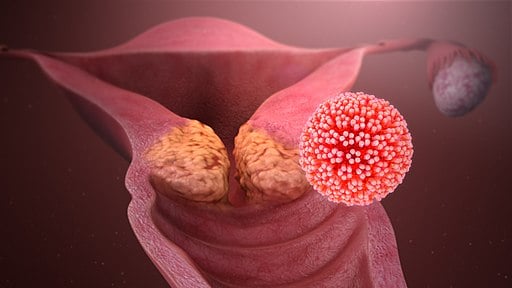
Major review points to success of HPV vaccine, cervical cancer could be eradicated in developed nations
pharmafile | June 27, 2019 | News story | Research and Development | Cancer, HPV, UK, cervical cancer, human papilloma virus, pharma, vaccines
A major new review published in The Lancet has supported the effectiveness of the human papilloma virus (HPV) vaccine in developed nations in reducing rates of cervical cancer, indicating that further use of the therapy could provide the chance to eliminate the disease from these countries in the coming decades.
The review examined 65 studies covering 60 million people across 14 high-income countries, including the UK, analysing HPV rates, rates of anogenital warts – which the virus can also cause – as well as pre-cancerous cells in the cervix called CIN.
It was found that vaccination efforts have driven an 83% reduction in HPV infections among girls between the ages of 15 and 19 over a period of between five and eight years. This reduction stood at around 66% in women aged between 20 and 24. Additionally, rates of anogenital warts saw major reductions, falling by 67% in 15-19-year-olds and 54% in 20-24-year-olds, while precancerous lesions were reduced by 51% and 31% in these groups.
These benefits did not remain within the demographics treated with the vaccine directly; men aged between 15 and 19 saw an almost 50% reduction in cases of genital warts, while women older than 30 also saw a significant reduction.
“We’re working with the WHO, using mathematical modelling to determine when elimination would occur,” remarked Laval University’s Professor Marc Brisson, an author on the study. “We don’t have a precise date. High vaccine coverage has to be maintained. It depends on the country and how much coverage and screening there is, and how many cohorts have been vaccinated.”
“This study furthers the growing evidence to counteract those who don’t believe that this vaccine works, which is now extremely encouraging,” commented Robert Music, Chief Executive at Jo’s Cervical Cancer Trust. “We sincerely hope this will boost public faith in the HPV vaccine, so that more lives can be saved and we get closer to a world where cervical cancer is a thing of the past.”
While the study shows great promise, countries like Ireland, Denmark and other European nations in which there has been rife anti-vaccine propaganda have seen a drop in vaccination rates, and there was no data collected on developing nations where cervical cancer is far more common; of the 569,000 cases of cervical cancer in 2018, 80% of them occurred in these less developed countries.
The WHO has set a goal of fighting back the prevalence of cervical cancer to less than four cases in every 100,000 people, which would make it less common than the prevalence of what we consider a rare disease.
The HPV vaccine was introduced in the UK for girls aged 12, but this was later expanded to include girls up to the age of 18. In September this year, the programme will be expanded to include young boys too.
Matt Fellows
Related Content

Geneos Therapeutics shares data from phase 1/2 trial for cancer vaccine
Geneos Therapeutics has announced that it has published positive safety, immunogenicity and efficacy data from …

Curve Therapeutics’ CSO publishes research on HIF inhibition for cancer treatment
Curve Therapeutics has announced that its chief scientific officer, Professor Ali Tavassoli has published research …

Merck shares results for Keytruda in cervical cancer treatment
Merck, known as MSD outside of the US and Canada, has announced positive results from …








